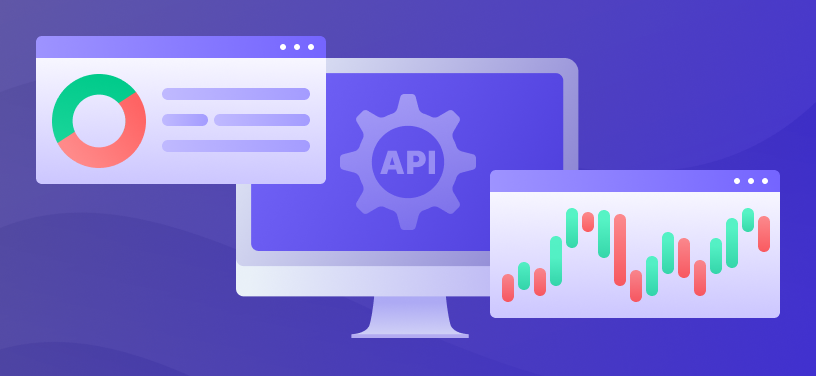Why Automating SEO Data Collection Is Critical in 2025
Modern SEO isn’t guesswork. It’s data-driven, competitive, and constantly shifting.
If you’re not tracking how your rankings change, how your backlinks evolve, and what keywords are emerging in your niche—someone else is. Manual checks once a week aren’t enough. You need daily or even hourly data to keep pace with your competitors, diagnose issues, and capitalize on content opportunities before they’re gone.
But here’s the problem: the more often you try to collect SEO data manually, the more time it eats. Copy-pasting keywords from Google Suggest, checking positions in incognito tabs, or exporting backlinks from tools can easily consume hours per client, per week.
The solution? Stop doing SEO manually—automate data collection at scale without getting blocked or wasting hours on browser exports.
What You Can (and Should) Automate for SEO
Let’s break down the most valuable areas of SEO data collection you can automate, and how to do it using modern tools and APIs.
1. Keyword Scraping: Google Suggest, “People Also Ask”, Related Searches
Finding the right keywords isn’t just about volume anymore. You want intent-based, SERP-proven, long-tail suggestions that your audience actually uses.
You can automate this using public data sources that search engines expose, like Google Autocomplete or People Also Ask boxes.
Tools & Methods:
- Google Suggest API (autocomplete queries):
GET https://suggestqueries.google.com/complete/search?client=firefox&q=your+seed+keyword- Scrape People Also Ask boxes using headless browsers or SERP APIs.
- Python + Requests + BeautifulSoup for simple structured scrapes.
- Store output in Google Sheets or Airtable with scheduled triggers.
Output:
- Fresh keyword variations
- Long-tail questions
- Entities for topical clustering
2. Backlink Monitoring: New Links, Lost Links, Anchor Texts
Link building doesn’t stop after the campaign ends. You need to monitor whether your backlinks stay live, gain authority, or disappear altogether.
What to track:
- New referring domains
- Lost backlinks
- Changes in anchor text
- Nofollow vs dofollow
Tools & Techniques:
- Ahrefs API / Majestic / SEMrush for periodic export
- Screaming Frog SEO Spider in scheduled crawl mode (with authentication)
- Link Grabber scripts that check indexed backlinks from Google via search operators:
site:example.com "your anchor text"Bonus: Automatically recheck lost links via HTTP status checks (200/404).
3. Rank Tracking: Google SERP, Bing, Mobile/Desktop
This is the most obvious but also the most delicate part to automate. Google SERPs vary by location, device, login status, language—and they don’t like being scraped.
But if you want real, uncached, unfiltered ranking data, automation is often the only way to go.
Ways to do it:
- SERP APIs (e.g., SerpApi, DataForSEO, Zenserp):
Get structured JSON output of position, title, URL, featured snippets, and more.
GET https://serpapi.com/search?q=best+seo+tools&engine=google- Custom Python Scrapers with rotating proxies and headless browsers.
- Integrate with Google Search Console API (for confirmed queries, impressions, CTR—though limited to verified properties).
- Store results daily in Sheets, BigQuery, or Supabase for historical trends.
Where Most Scripts Break: CAPTCHA
Automating SEO data collection almost always leads to friction. And one of the most common blockers is CAPTCHA—especially when querying Google too often or too fast.
This is where CapMonster Cloud becomes essential.
Case Study: Using CapMonster Cloud to Scrape SERPs at Scale
Imagine you’ve built a headless browser script using Puppeteer or Playwright to collect top 10 search results for a list of keywords daily. You’re running it from a VPS with proxy rotation.
Everything works fine—until Google starts throwing reCAPTCHA on every 4th request.
Without human intervention, the automation fails.
Solution:
CapMonster Cloud solves this in the background. Here’s how it integrates:
- Your scraper detects a reCAPTCHA challenge.
- It sends the sitekey + URL to CapMonster Cloud via a POST request:
{
"clientKey": "YOUR_API_KEY",
"task": {
"type": "NoCaptchaTaskProxyless",
"websiteURL": "https://www.google.com/search?q=seo+automation",
"websiteKey": "SITE_KEY_HERE"
}
}- You receive a solution.gRecaptchaResponse.
- Add the response into the page.
- Scraper proceeds normally.
CapMonster Cloud handles thousands of CAPTCHA solutions daily, at scale, and supports all major CAPTCHA types—making it a perfect backend for SERP scrapers or keyword bots.
Best Practices to Avoid Blocks and CAPTCHA in SEO Automation
If you're serious about scraping SEO data, even with automation tools, you still need to play smart. Here are the most effective tactics:
1. Use Residential or Mobile Proxies
Datacenter proxies get blocked fast. Tools like ZennoProxy or Bright Data offer more “human-like” IPs.
2. Randomize Everything
- User-agents
- Request intervals
- Viewport sizes (in headless browsers)
- Search parameters
3. Respect Rate Limits
Even if you’re scraping public data, excessive hits in a short time will trigger anti-bot mechanisms.
4. Set Retry + CAPTCHA Solving Logic
Never treat scraping as a binary process. Build fallbacks. If the first attempt fails:
- Retry with delay
- Switch proxy
- Trigger CapMonster Cloud
- Retry the step
5. Cache & De-Dupe
Save previous results locally or in a database. Don’t re-request what you already know—this both improves speed and reduces flags.
Wrap-Up: SEO Isn’t Getting Easier—But Automation Helps You Stay Ahead
Search engines are changing faster than ever. If your SEO processes rely on weekly manual checks, you’re already behind.
Automating SEO data collection—keywords, backlinks, rankings—isn’t just about saving time. It’s about giving yourself the visibility and agility needed to compete at scale.
From scheduled SERP checks to smart keyword mining and backlink re-validation, your workflow should work while you sleep.
Just don’t forget: every automation that scrapes the open web will eventually run into CAPTCHA. That’s why CapMonster Cloud deserves a spot in every SEO automation stack.
Need to automate SERP scraping without getting blocked? Try CapMonster Cloud to solve CAPTCHA in your keyword, backlink, and ranking workflows—at scale, without code
NB: Please note that the product is intended for automating tests on your own websites and sites you have legal access to.


